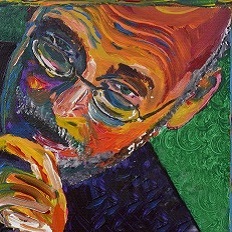Feeling shifty
There are so many shifts: left, antigenic, night, phase, and more.
I just finished my shift as “medical officer of the day” and thought I'd shift gears into writing mode. Today I heard an intern remark that her patient had a left shift, and something shifted inside my head. I realized what I had to write about.
The phrase “left shift” has a rather prosaic origin. When early cell counts were performed, the columns for immature granulocytes were traditionally on the left side of the scoring sheet that the technologist used to mark the tally. Josef Arneth, a German hematologist, described in the 1920s how to distinguish immature white cells as a sign of infection and graphed them on the left side of his chart. One or both of these is the source of the shift. Luckily we didn't go with eponymous terminology, as an “Arneth shift” would be a mouthful. In modern parlance, left shift has evolved to mean neutrophil predominance and not the maturity of those cells. (This observation is not political commentary.)

Another kind of shift is antigenic. In the midst of this pandemic, it has been natural to think about the influenza epidemic of 1918. These two viral cataclysms are bookends to a century. The influenza epidemic of 1918 was due to antigenic shift of those two nasty surface proteins, hemagglutinin and neuraminidase, as opposed to the annual antigenic drift to which we now adjust with alterations in our flu vaccines. I'll pick drift over shift any year.
Of all the shifts hospitalists work, the night shift is the most reviled. There are a few reasons it might be called the graveyard shift. Is it that working at night is lonely and dark and spooky, or is it related to residual worry about the resurrectionists, out to rob graves to sell corpses to anatomists? If you were a young journalist in England in the mid-1800s, the night shift was called the lobster shift, and you were assigned to it because nothing really happened at that time. I have always thought that being a nocturnist would be best in a big city where there was action in the middle of the night. I'd want to be in New Orleans, where 2 a.m. is still hopping on your day off. At 2 a.m. in Rochester, Minn., the choices are much more limited, to say the least.
I bought my first car as a medical student. I wanted an automatic, but all they had was manual. For the test drive I asked the salesman to show me how to drive stick. His reaction was hilarious. I have enjoyed driving stick ever since, though a few years in a rusty used Mazda RX-7 that was more like a go-cart made me appreciate air bags. Now when I hear someone say it's time to shift gears, I wonder if they've ever driven a stick shift.
The phase shift of the Doppler is important in medicine. Without this phenomenon we could not use vascular ultrasound. I remember in 1992 when my hospital at the time, St. Mary's in Galveston, Texas, first bought a Doppler ultrasound machine and nobody could read the studies. The hospital administrator, Sister Anastasia, sent me to Cedars-Sinai in L.A. to train. It was my first work trip ever, and they put me up in a nice hotel. It felt strange to be sitting there, courtesy of the nuns, drinking a beer from the minibar. Now the days of me reading Doppler studies are long past. When patients are being admitted to the hospital, I think of the Doppler effect and the color shift of an object in motion. Admissions are all red, and all discharges shift blue.
Finally, as I type, I look at the shift key and start thinking about the old typewriter I keep in my study. When you hit the shift key, the entire carriage shifts upwards. Even though nothing actually shifts on a modern keyboard, it will always be called the shift key. (The thing that bothers me most on the modern keyboard, however, is the number lock, a vestigial key from when you needed to lock the numbers to use the arrows on keys 2, 4, 6, and 8. Now we have separate arrow keys, but the number lock persists, torturing me every time I type in a patient's clinic number only to discover it is blank. Curse you, number lock.)
A really good running back is said to be shifty in his ability to change direction and speed and avoid being tackled. There are many shifty characters in literature and life. There are population shifts and tectonic plates. And then there are medical columns, like this one, full of shift.



